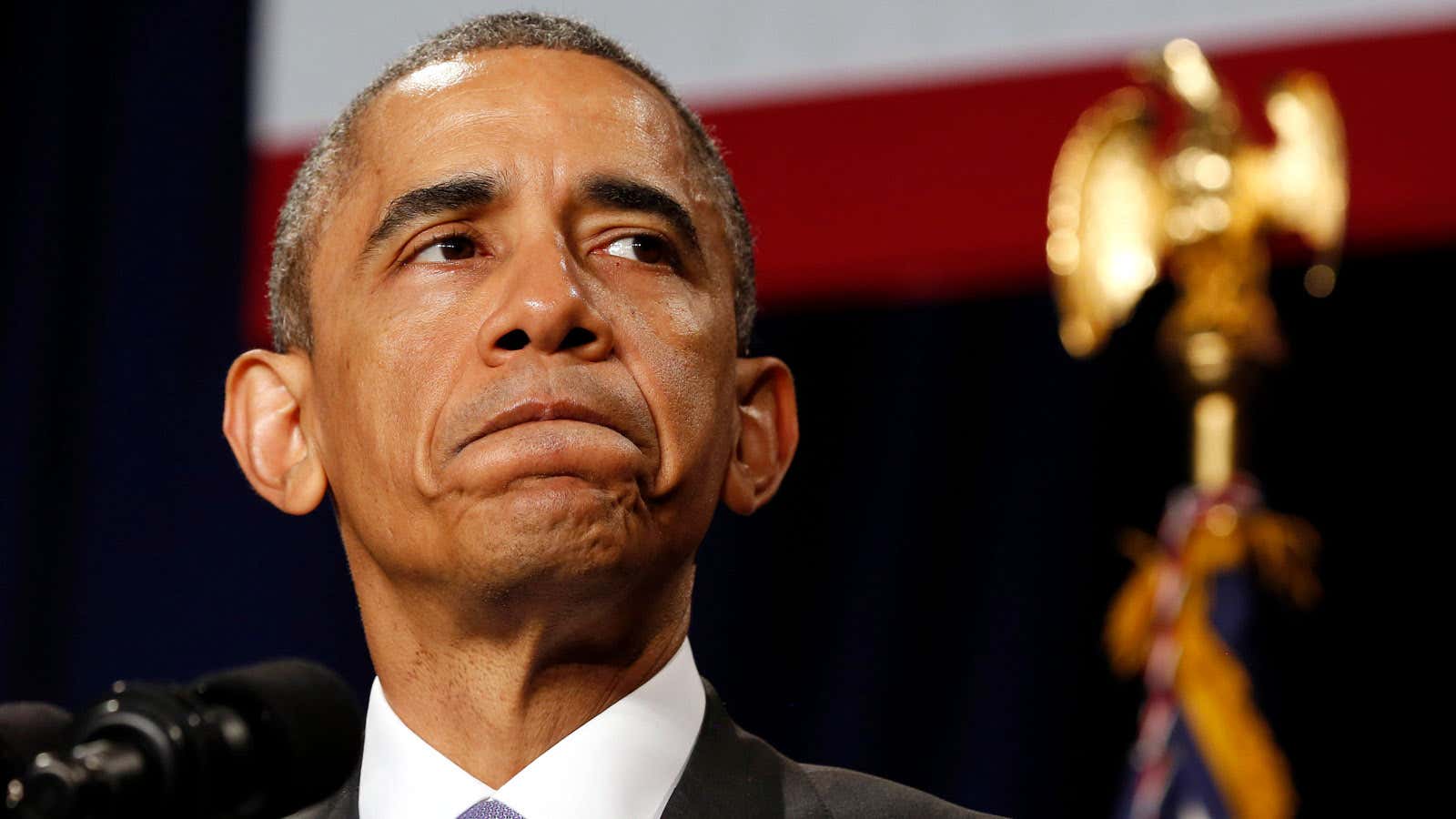President Obama is getting a lot of flack today for backing a spending bill that rolled back a rule intended to prevent the next financial crisis and gutted campaign finance restrictions. But he hasn’t gotten enough credit for quashing an enormous tax giveaway to business that would have blown up the deficit.
We’re talking about a deal struck by members of Congress in both parties to make permanent a number of major tax breaks for businesses without paying for them, which would add nearly $530 billion to the deficit—more than half of what was cut from the budget over the last four years of cuts. (Which is, incidentally, a lot more than it ultimately cost to bail out the banks.)
The bill included provisions that allow corporations to save on corporate jets but don’t do much to create jobs. The largest provision made permanent the research and development tax credit, a policy that Obama actually supports, but he has said he’ll only extend that largesse to companies in concert with tax breaks for low-income families and parents—the Earned Income Tax Credit and the Child Tax Credit—which Republicans left out of the bill.
Obama, unhappy that with lack of fiscal responsibility and the tilt toward business, threatened to veto the bill, a move that effectively killed it. Now, lawmakers are expected to once again pass a retroactive, one-year extension of the tax laws, which will force the US to borrow an additional $45 billion next year.
Still, Obama’s decision will be important next year if lawmakers take up “revenue-neutral” tax reform plans—which are intended to lower rates while raising the same amount of money for the government. Permanently extending tax provisions now would have tied the hands of Congressional negotiators trying reach a tax deal that doesn’t require more borrowing or significant spending cuts.
While the venal derivatives compromise in the spending bill at least left financial regulators with increased funding to hopefully limit the new loophole’s damage, this tax bill was a big give-away in and of itself—one that would have set the table for even worse tax policy next year.
